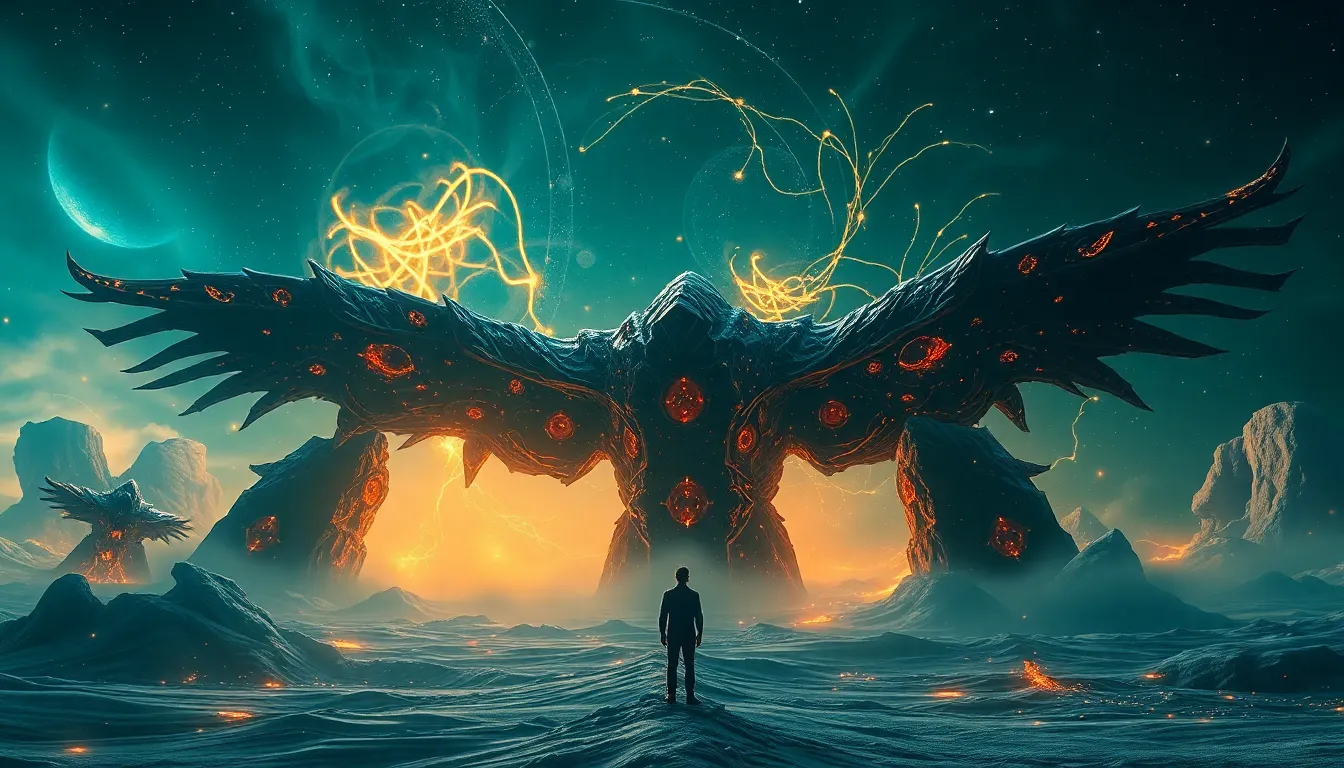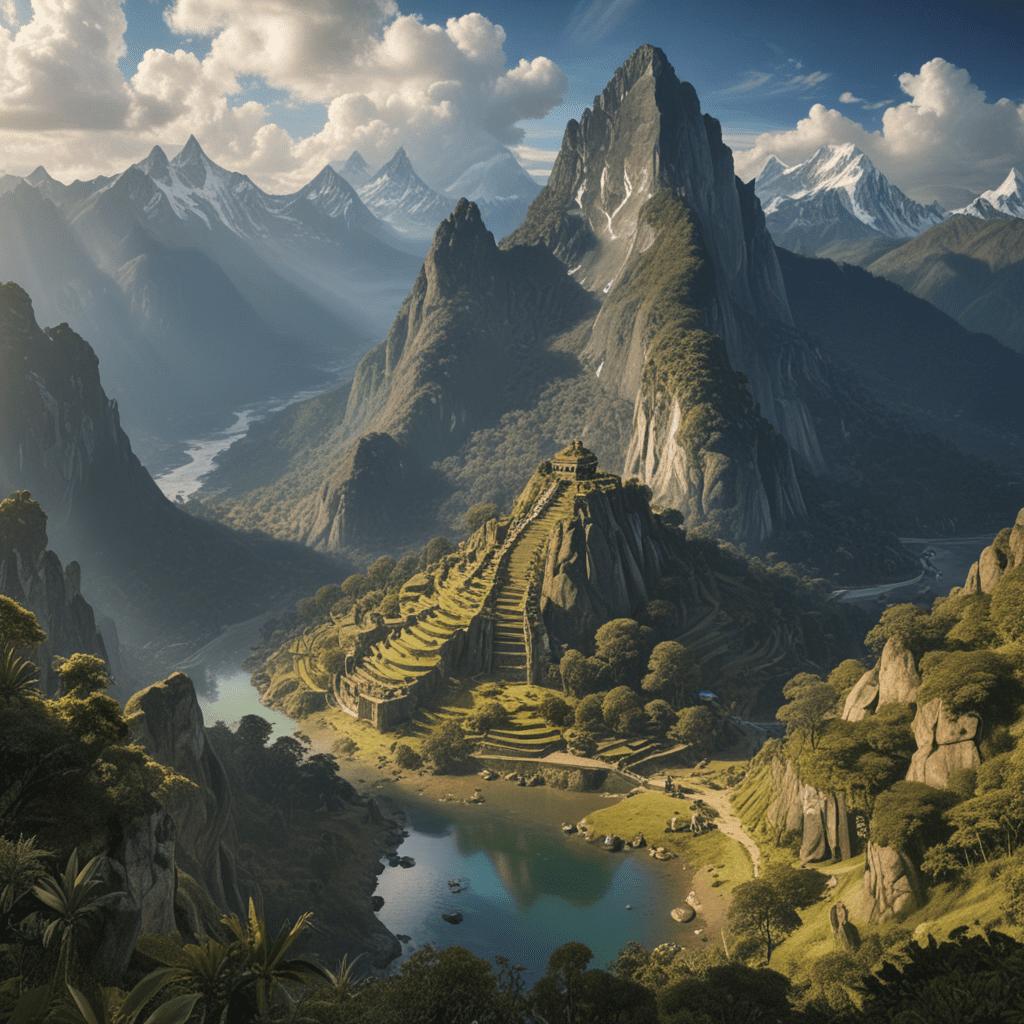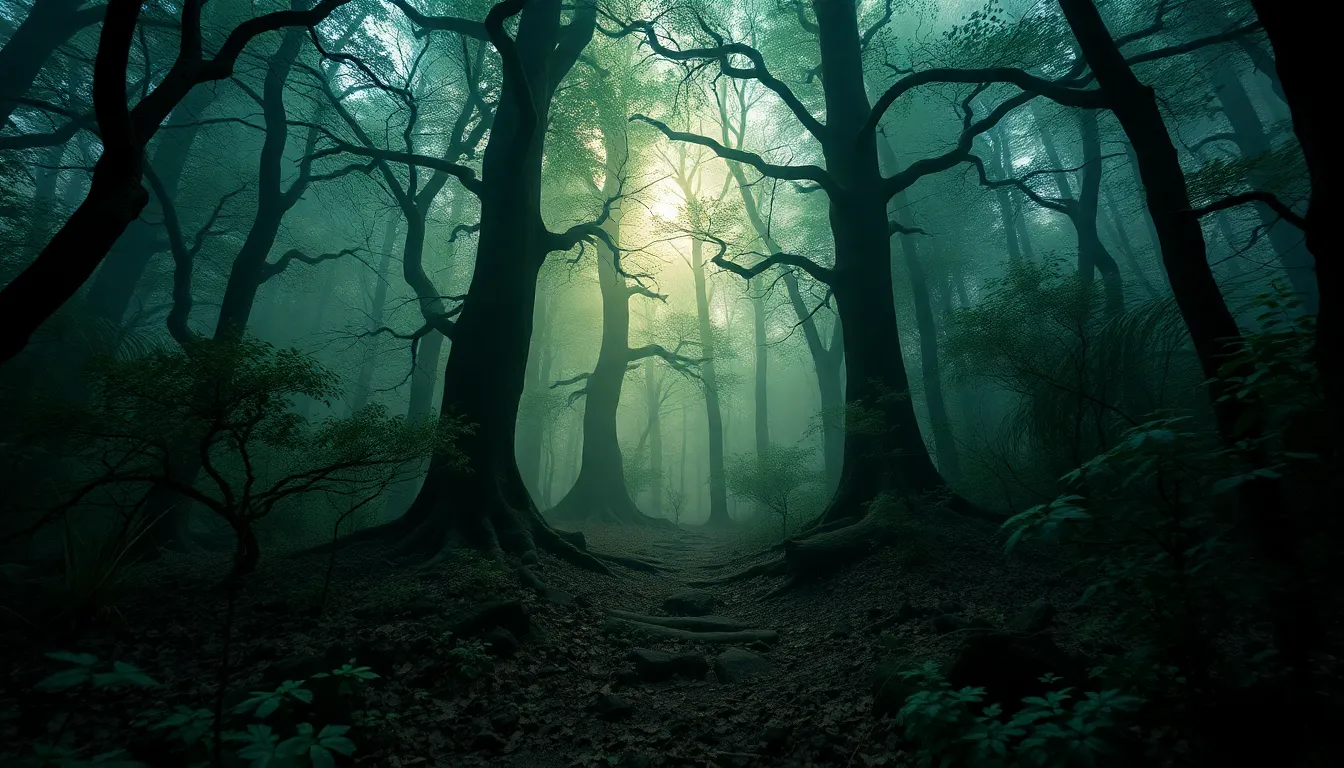From Nothing to Everything: The Most Incredible Creation Stories
1. Introduction: The Quest for Origins
Throughout history, creation stories have played a pivotal role in shaping human understanding of existence. Across cultures and civilizations, these narratives offer insights into the origins of the universe, life, and humanity itself. The universal human curiosity about origins not only reflects our need to comprehend our place in the cosmos but also serves as a means to connect with our cultural heritage and shared identity.
2. Understanding Creation Myths: Definitions and Importance
Creation myths are traditional narratives that explain how the universe, Earth, and life came into being. They often involve gods, supernatural beings, or cosmic events, and serve important functions in various cultures, including:
- Providing explanations for natural phenomena
- Establishing moral and ethical frameworks
- Fostering a sense of community and belonging
- Offering insights into the human condition and existence
These stories are crucial for understanding the psychological and societal frameworks of cultures, as they embody the values, beliefs, and experiences that define communities.
3. The Cosmic Egg: A Universal Symbol of Creation
The concept of the cosmic egg is a recurring motif in creation myths around the world, symbolizing potential, fertility, and the genesis of life. In Hindu mythology, the universe is said to have originated from the Hiranyagarbha, or Golden Egg, while Chinese mythology speaks of Pangu, who emerged from a cosmic egg to create the world. The symbolism of the cosmic egg often implies:
- Unity and wholeness
- The cyclical nature of life
- The emergence of order from chaos
This motif highlights the shared human fascination with beginnings and the transformative processes that lead to existence.
4. Genesis and the Judeo-Christian Narrative
The creation story in the Book of Genesis is one of the most influential narratives in Western thought. It describes how God created the world in six days, culminating in the creation of humanity in His own image. Key elements of this narrative include:
- The act of divine creation as a purposeful endeavor
- The establishment of a moral order through the creation of good and evil
- The concept of stewardship over the Earth
This story has profoundly impacted religious beliefs, ethical considerations, and cultural practices in the Western world, shaping views on humanity’s role within creation.
5. Indigenous Creation Stories: A Connection to Nature
Indigenous creation narratives often emphasize a deep connection to nature and the environment. For example, many Native American tribes tell stories of Earth being formed from the body of a primordial being, emphasizing the sacredness of the land and its creatures. Aboriginal Australian creation stories, such as the Dreamtime, illustrate the spiritual significance of the land and its role in shaping identity and culture. These stories highlight:
- The interdependence of humans and nature
- The importance of land stewardship
- The role of ancestors in maintaining cultural traditions
Such narratives serve as vital links between past, present, and future, reinforcing the significance of environmental harmony.
6. The Big Bang Theory vs. Mythological Creation
The Big Bang Theory offers a scientific explanation for the origins of the universe, positing that the cosmos began as a singularity and expanded over billions of years. This scientific perspective contrasts with mythological creation stories, which often attribute the creation of the universe to divine or supernatural forces. Key differences include:
- Scientific narratives are based on empirical evidence and observation.
- Mythological stories convey cultural values and existential meanings.
Despite their differences, both narratives shape human understanding of existence and provoke philosophical inquiries into the nature of reality.
7. Creation Stories in Eastern Philosophies
In Eastern philosophies, creation narratives often emphasize cycles, balance, and the interconnectedness of all beings. Hinduism presents various creation stories, including the emergence of the universe from Vishnu’s navel. Buddhism, on the other hand, focuses on the cycle of samsara and the concept of impermanence. Taoism speaks of the Tao as the source of all creation, highlighting:
- The unity of opposing forces (Yin and Yang)
- The importance of harmony and balance in existence
- The cyclical nature of life and death
These narratives offer profound philosophical insights into the nature of existence and the human experience.
8. Modern Interpretations and Retellings
Contemporary authors and artists have sought to reinterpret traditional creation myths, bringing new perspectives that resonate with modern audiences. These retellings often challenge established narratives, exploring themes of identity, gender, and environmentalism. Notable examples include:
- The reinterpretation of Genesis in feminist literature
- Graphic novels that visualize ancient myths in contemporary contexts
- Films that merge science fiction with mythological elements
These modern interpretations highlight the dynamic nature of creation stories and their relevance in contemporary cultural discourse.
9. The Role of Creation Stories in Identity Formation
Creation myths play a significant role in shaping cultural and personal identities. They provide a narrative framework through which individuals and communities understand their origins and values. Case studies of various communities demonstrate how these narratives foster cohesion and belonging:
- The role of the Dreamtime in Aboriginal identity
- Native American stories that reinforce community ties
- Judeo-Christian narratives that shape Western moral frameworks
Through these stories, individuals connect with their heritage and find meaning in their lives.
10. Conclusion: The Enduring Legacy of Creation Stories
Creation myths continue to hold relevance in contemporary society, offering insights into our place in the universe and shaping our beliefs and values. As we navigate an increasingly complex world, these narratives remind us of the fundamental questions of existence and the shared human experience. The enduring legacy of creation stories lies in their ability to foster understanding, connection, and reflection on our origins and our future.



